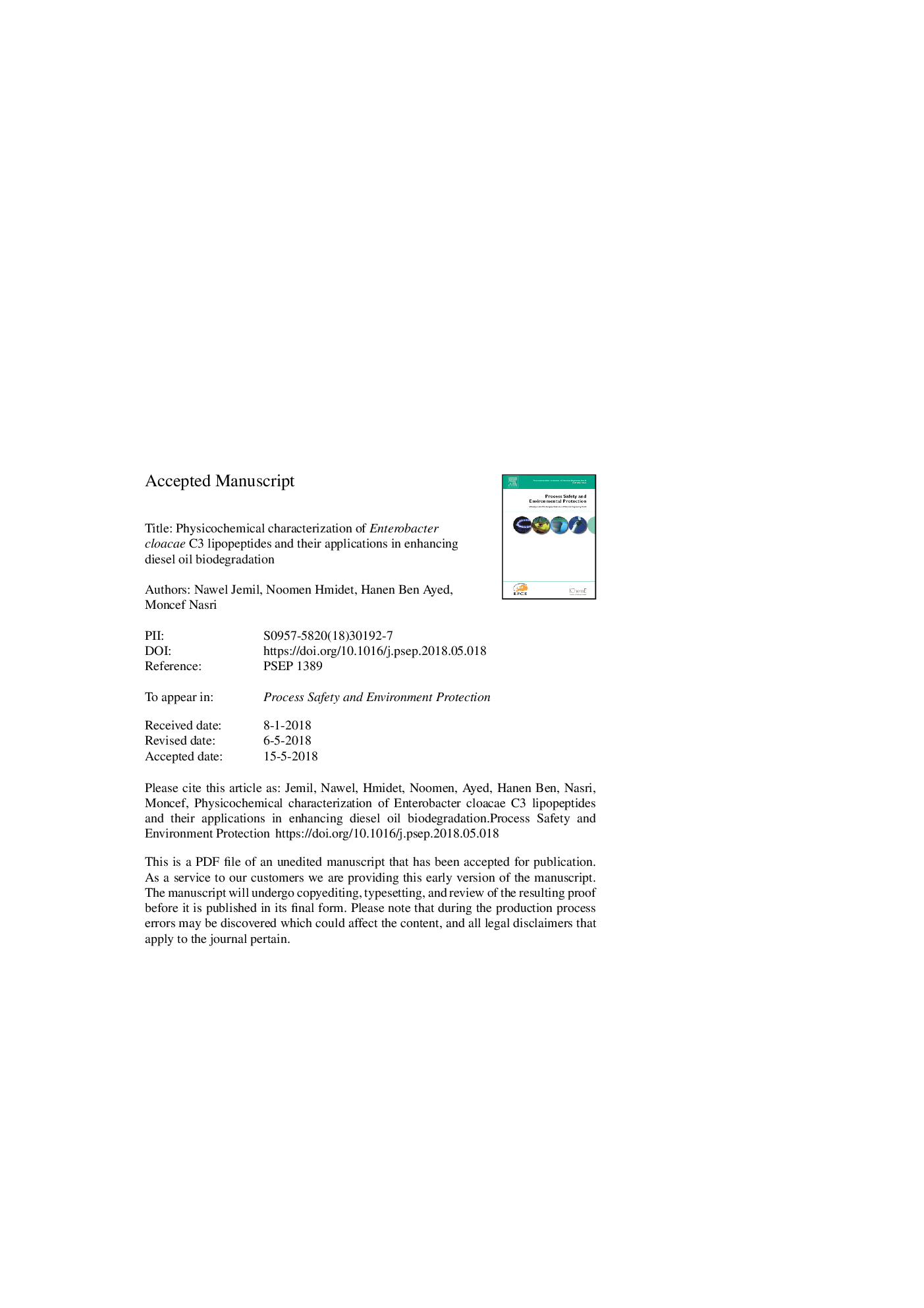| Article ID | Journal | Published Year | Pages | File Type |
|---|---|---|---|---|
| 6973980 | Process Safety and Environmental Protection | 2018 | 38 Pages |
Abstract
Enterobacter cloacae C3 strain was isolated from a soil contaminated by natural-gas condensate in Sfax City, Tunisia. This strain was selected for further studies based on its high surface activities. The physicochemical properties and stability of produced biosurfactants were investigated. Biosurfactants from E. cloacae C3 strain are able to reduce the surface tension of Landy medium from 65 to 32Â mN/m. The produced biosurfactants were identified as lipopeptides using thin layer chromatography (TLC) technique. Acid precipitated lipopeptides have critical micelle concentration of 100Â mg/l. They showed good emulsification activities against different hydrocarbon substrates in comparison with chemical surfactants Tween 80 and SDS, and they were effective in a wide range of temperature and pH. Good performance of diesel oil solubilization was exhibited by lipopeptides C3 at extreme environmental conditions, which is essential for enhancing oil recovery. The degradation of diesel oil (2.0%, v/v) in mineral-salts medium reached a maximum value of 48% after about 15Â days of incubation, in the presence of 0.1% (w/v) lipopeptides. These results suggest the importance of lipopeptides C3 production for application in bioremediation of environments polluted with various hydrocarbons.
Related Topics
Physical Sciences and Engineering
Chemical Engineering
Chemical Health and Safety
Authors
Nawel Jemil, Noomen Hmidet, Hanen Ben Ayed, Moncef Nasri,
